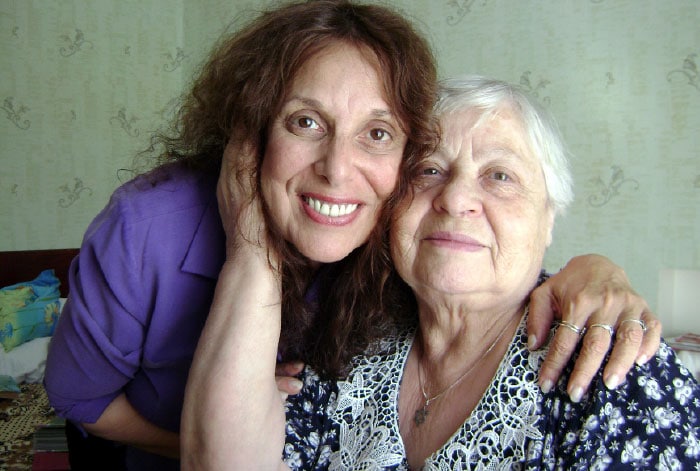
When the war in Ukraine broke out, Zane Buzby, founder of The Survivor Mitzvah Project, sprang into action. To help Holocaust survivors there, her nonprofit organization is checking in on 350 survivors, delivering extra aid like food and life-saving medication and, if the survivors are able to make the journey, getting them across the border. They live in more than 50 towns and cities, and 50 of them are between 90 and 102 years old. Most of them cannot afford doctors, medications or surgeons, and half of them are bedridden or have mobility issues.
“We have been in constant communication with each survivor we help, in the form of home visits, written correspondence and telephone calls in their native language,” Buzby said. “It is of utmost importance, especially now, that we continue our communication, letting survivors know they have not been forgotten. This is critical for these elderly individuals who, for decades, have been isolated, alone and forgotten by the world.”
It is of utmost importance, especially now, that we continue our communication, letting survivors know they have not been forgotten.” – Zane Buzby
Jews have been in Ukraine for over 1,000 years, and prior to the Holocaust, Ukraine was home to the largest Jewish population in Europe, according to the U.S. Holocaust Memorial Museum. Over the course of two days, the Nazis murdered about 34,000 people, and the ravine where it happened is known as Babi Yar, the largest mass grave of the Holocaust. Recently, Russian bombs hit the site and seriously damaged it.
Buzby, who has supplied direct aid to over 2,500 Holocaust survivors in nine countries, including Ukraine, Belarus, Estonia, Latvia, Lithuania, Moldova, Slovakia, Transnistria and parts of Russia, said that there aren’t accurate records available on the number of survivors left in Ukraine. Sources estimate there are around 10,000 survivors living there.
“Since the war began, we have spoken to survivors in hospitals that are being bombed, in bomb shelters and those who are trapped in their apartments because they are bedridden or blind,” she said.
The survivors have been relaying troublesome messages to her. “We hide when there are alarms, but we are on the road to Kiev, and our army is at Uman, so they are trying to protect us,” one of the survivors told Buzby. “How long that will last, who knows. We hide in a bomb shelter across the street. I was at my daughter’s, who lives on the same street, but it’s always better at home. Do we sleep at night? Hardly.”
All Ukrainians are being traumatized by the constant violence happening throughout the country. But for Holocaust survivors, the war brings up frightening memories of the past.
“The PTSD is affecting those who have already been through a war in Ukraine,” Buzby said. “The incessant explosions, dead bodies in the streets, the smell of gunpowder in the air, the constant sirens, the lack of food and fear of starvation, all contribute to this massive fear because they know too well that this might never end. It brings memories and nightmares of their families being starved, shot or blown to bits.”
Buzby pointed out that people may think that world aid organizations or large charities are taking care of survivors. However, the pallets of food and medical supplies being shown on TV “are not yet reaching most of those caught inside Ukraine,” she said. “Only those who have managed to cross into Poland, Hungary or Moldova are receiving food and water, heat, shelter and medical attention.”
The situation in Ukraine is only getting worse, and there is no end in sight. Now, Buzby said, is the time to support the survivors there.
“The only way to help survivors directly is to keep donating generously until the last survivor is safe from bombs, bullets and the inevitable starvation that comes with Russia’s war on civilians which harms the most vulnerable of our people, the last survivors of the Holocaust,” she said. “Elderly, isolated, ill and alone, they need our help now.”
You can donate to The Survivor Mitzvah Project on their website.


































 More news and opinions than at a Shabbat dinner, right in your inbox.
More news and opinions than at a Shabbat dinner, right in your inbox.